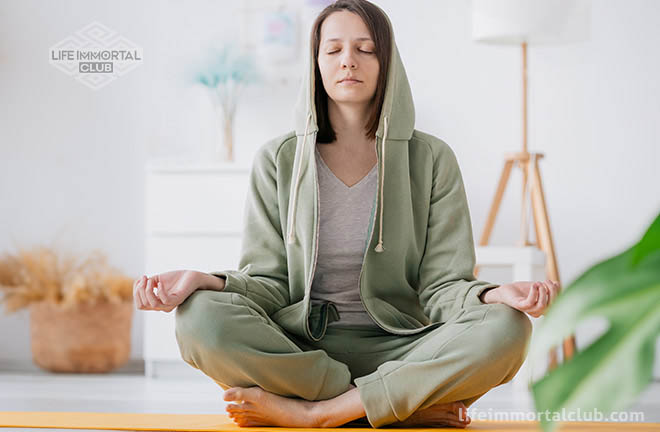Mind your Mind: The Ultimate Guide to De-Stress Your Life with Mindfulness Techniques

The Role of Mindfulness in Managing Stress
Stress is a part of life that we all experience, but chronic stress can have negative impacts on our mental and physical health. When we are under stress, our body releases hormones such as cortisol and adrenaline that can cause a range of health problems. Some common effects of stress include headaches, muscle tension, and difficulty sleeping.
However, managing stress doesn't have to be complicated or expensive. One effective way to manage stress is through mindfulness techniques. Mindfulness is the practice of being fully present in the moment without judgment or distraction. It involves paying attention to what you are experiencing right now - your thoughts, feelings and bodily sensations.
The Benefits of Mindfulness in Reducing Stress
Research has shown that practicing mindfulness regularly can help reduce symptoms associated with chronic stress such as anxiety, depression and high blood pressure. By focusing on the present moment instead of worrying about the past or future, you are able to let go of negative thoughts that contribute to feelings of overwhelm.
In addition to reducing psychological symptoms associated with stress, mindfulness has been shown to have physical benefits as well. Regular practice has been linked with reduced inflammation in the body which is a key contributor to many chronic diseases such as heart disease and diabetes.
Applying Mindfulness Techniques in Daily Life
Incorporating mindfulness into your daily routine does not have to be time-consuming or difficult. Simple practices like taking three deep breaths before responding to an email or pausing for a moment before eating can make a big difference in how you feel throughout the day.
By taking small moments throughout your day to focus on your breath or become fully present with your surroundings, you can begin rewiring your brain away from constant worry and towards more peaceful thoughts. With time and practice, mindfulness can become a habit and can help you better manage stress in all areas of your life.
Mindfulness Techniques for Better Health
Breathing exercises to calm the mind and body
One of the simplest mindfulness techniques is deep breathing. This technique requires no equipment or special training, and it can be practiced anywhere, at any time. The idea behind deep breathing is to consciously breathe in through your nose, filling your lungs with air, and then exhale through your mouth slowly.This process of breathing helps to calm your mind and relax your body. Deep breathing has been shown to reduce stress levels by slowing down the heart rate and lowering blood pressure.
A study published in the International Journal of Behavioral Medicine found that practicing deep breathing for just 10 minutes a day can significantly reduce anxiety levels. So next time you feel overwhelmed or stressed out, take a few moments to focus on your breath.
Body scan meditation to release tension in muscles
Body scan meditation is a technique that involves scanning your body from head to toe with your attention, noticing any areas of tension or discomfort, and then intentionally relaxing those areas.
This technique can help release physical tension in muscles and promote relaxation throughout the entire body. To practice a body scan meditation, find a quiet place where you won't be interrupted for about 15-20 minutes.Lie down on a comfortable surface with eyes closed and bring awareness to different parts of the body starting from toes up towards head focusing on each part one at a time as if scanning it. While doing so relax each part starting from toes upwards by tensing up & releasing individual parts one by one.
Mindful eating to improve digestion and reduce stress
Mindful eating is all about paying attention to what you're eating while you're eating it - without distractions like phones or television screens - so that you can fully experience every bite. It's about being present in the moment with mindful awareness towards food. When you take time to savor every bite, you're more likely to recognize when you're full and less likely to overeat.
Mindful eating can also reduce stress levels by helping you develop a healthier relationship with food. Instead of turning to food as a coping mechanism for stress, try practicing mindful eating as a way to nourish your body and improve digestion.
Yoga poses for relaxation and flexibility
Yoga is an ancient practice that combines postures with breathing techniques and meditation. It has been shown to have numerous health benefits, including reducing stress levels and increasing flexibility. Some yoga poses like downward dog, child's pose or cat-cow stretch can be done easily at home without any equipment.
These poses not only help stretch your muscles but also help calm your mind by focusing on breath work while moving through positions. With regular practice, Yoga can leave you feeling more relaxed, focused and energized all at once!
Incorporating Mindfulness into Daily Life
Setting Aside Time for Mindfulness Practice
One of the most important aspects of incorporating mindfulness into daily life is setting aside time to practice. This can be as little as five minutes a day or as much as an hour, depending on your schedule and preferences. It's best to find a time when you won't be interrupted, such as early in the morning or before bed.
During this time, find a quiet place where you can sit comfortably and focus on your breath. You can use guided meditations or simply pay attention to the sensation of air moving in and out of your body.If thoughts arise, simply acknowledge them without judgment and return your focus back to your breath. With consistent practice, you'll find that it becomes easier to calm your mind and cultivate inner peace throughout the day.
Mindful Communication with Others
Mindful communication involves being present and fully engaged in conversations with others. This means actively listening without judgment or distraction, and responding with care and empathy.
To improve mindful communication skills, try practicing active listening during everyday conversations. Avoid interrupting others, ask clarifying questions when necessary, and show genuine interest in what they have to say.
When responding, take a moment to pause and choose your words carefully. Responding thoughtfully rather than impulsively can lead to more meaningful connections with others.
Creating a Peaceful Environment at Home and Work
A peaceful environment can greatly contribute to reducing stress levels in daily life. This means taking steps to create an environment that promotes relaxation and calmness. At home, consider adding plants or calming aromatherapy scents like lavender or chamomile.Keep clutter at bay by regularly decluttering spaces like closets or countertops. At work, try incorporating elements like natural lighting or soothing background music if possible.Taking regular breaks throughout the day and stepping outside for fresh air can also help to promote a sense of calmness and reduce stress levels. By incorporating these mindfulness techniques into daily life, you can cultivate a greater sense of peace, relaxation, and overall well-being.
Additional Tips for Stress Management
Exercise regularly to release endorphins
Exercise is one of the best things you can do for your body and mind. It not only helps you stay fit and healthy, but it also releases endorphins that can help reduce stress and anxiety. Whether you prefer running, swimming, yoga, or weightlifting, finding a physical activity that you enjoy is key to making exercise a regular part of your routine. If you're short on time, even a 10-minute workout can help boost your mood and energy levels.
Get enough sleep to restore the body
Sleep is essential for our bodies to repair and recover from the day's activities. Yet many of us don't prioritize getting enough sleep in our busy lives. Lack of sleep can lead to increased stress levels, fatigue, and even decreased productivity at work. Aim for 7-8 hours of sleep each night by creating a relaxing bedtime routine that includes turning off electronics an hour before bed and avoiding caffeine later in the day.
Practice gratitude to shift focus from negative thoughts
When we're stressed out, it's easy to get caught up in negative thoughts about our lives or situations we can't control. Practicing gratitude is one way to shift our focus back onto the positive aspects of our lives. Take time each day to reflect on what you're grateful for - whether it's something as simple as having food on the table or a loving partner - and write them down in a journal or share them with someone else. Over time, this practice will help train your brain to notice more positive aspects of your life and reduce stress levels.
Incorporating these additional tips into your daily routine along with mindfulness techniques will significantly de-stress your life resulting in better health overall. Remember that self-care should be an ongoing priority rather than a one-time fix, and making small changes over time can lead to significant improvements in your physical and mental well-being.
Mindfulness: The Key to Stress Reduction
Mindfulness has become a buzzword in recent years, but it's much more than just a trend. It's an essential tool for reducing stress and improving overall health. As we've seen in the previous sections, various mindfulness techniques can help calm the mind and body, release tension, and improve physical and mental well-being.
Reiteration of Importance of Mindfulness in Reducing Stress
Stress is a pervasive problem in our modern lives. From work pressure to relationship woes, financial strains to social media overload- there's no shortage of things that cause us stress on a daily basis. The good news is that mindfulness can be an effective remedy for this widespread problem.
By practicing mindfulness regularly - whether through meditation, breathing exercises or yoga poses - you can retrain your mind to focus on the present moment rather than dwelling on past regrets or future worries. This shift in focus helps reduce stress levels by promoting relaxation and minimizing anxiety.
Incorporating Mindfulness into Your Daily Routine
It's easy to get caught up in the busyness of daily life and forget about self-care practices like mindfulness. But if you're serious about reducing stress levels and improving your health, it's imperative that you make time for these practices. One way to incorporate mindfulness into your routine is by setting aside 5-10 minutes each day for meditation or breathing exercises.
Another way is by practicing mindful eating - taking time to savor each bite, appreciate the flavors and textures of your food while avoiding distractions like TV or phone. If you're short on time, try incorporating small moments of mindfulness throughout the day - whether it's taking a few deep breaths before entering a meeting or stretching at your desk during work breaks.
Final Thoughts: Make Mindfulness Your Habit
There are countless ways to incorporate mindfulness into your daily routine. The important thing is to find what works for you and stick with it. Making these practices a regular part of your life can help reduce stress levels, improve mental and physical health, and create a sense of calm amidst the chaos of daily life. So, whether it's waking up 10 minutes early every morning to meditate or practicing yoga in your living room after work, commit to making mindfulness a habit in your life. Your mind and body will thank you!







